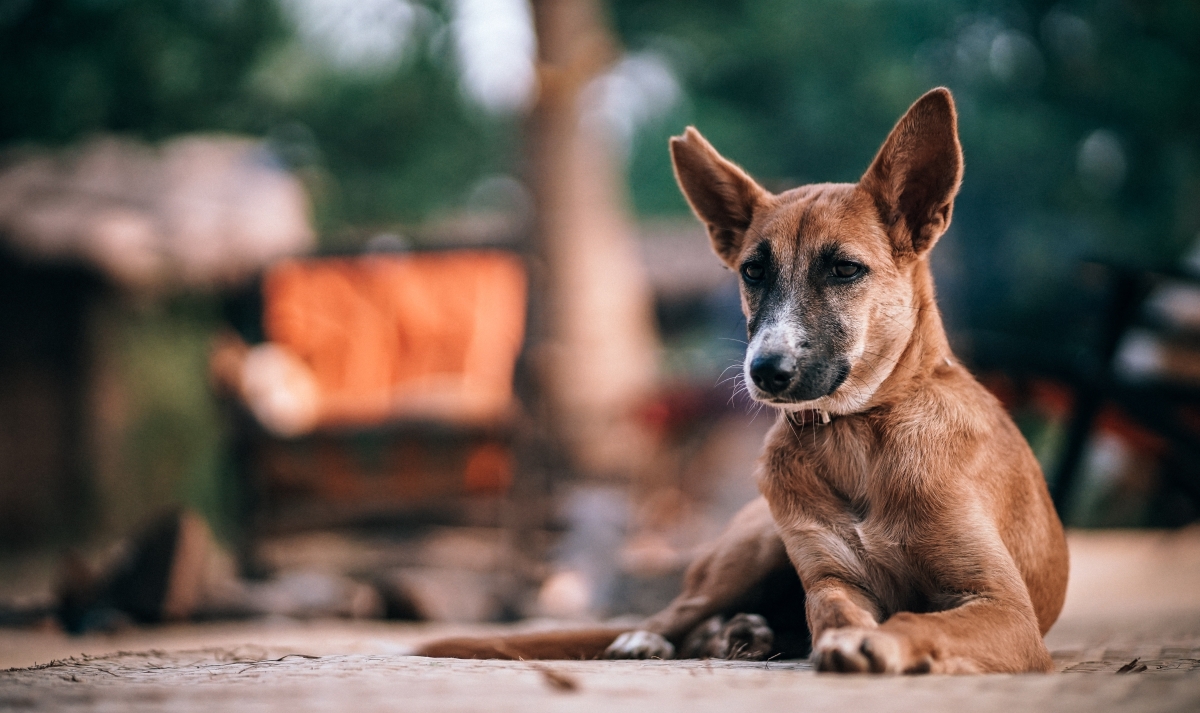
Summer is a time of year when many young people leave the UK to go backpacking, either between academic years or for a gap year before starting university. Many travellers neglect to consider taking any medical supplies with them at all, and are forced to seek out a pharmacy once the insect bites become unbearable or after a dodgy meal! Being prepared and taking a small travel first aid kit with you, along with some over-the-counter pharmaceuticals and products, could make your journey much more comfortable and spare you the stress of looking for supplies in a foreign country.
Check out our Adventurer First Aid Kit for a comprehensive kit at a great price - ideal for backpacking, it can clip to the outside of your gear, saving valuable space.
Our list of travel health essentials
The exact items you’ll need to stay healthy will vary depending on the climate and level of development of the country you’re visiting. You won’t have much need for sunscreen or insect spray during a Scandinavian winter, but mosquitoes can be a real pest in summer even in northern latitudes. The following are general travel recommendations for a variety of destinations.
- Diarrhoea pills – Loperamide is the most common drug for this, and it helps limit the worst effects of catching a stomach bug. It may not be the most pleasant thing to think about, but hygiene standards in many countries aren’t as stringent as those we expect in the UK, and being on the other side of the world, you’ll naturally be exposed to new bacteria. Traveller’s diarrhoea is very common in a wide range of destinations so it’s wise to be prepared!
-
Water purification tablets – Although bottled water is widely available throughout the world, water purification tablets can come in handy if you need to (or prefer to) use tap water, or if you’re not confident about the quality of the bottled water. Bottled water is usually safe, but you should always check the seal first. Even if there’s a plastic wrapping over the bottle cap, this doesn’t guarantee safety: there are places where unscrupulous people will re-use and refill plastic bottles with unsafe water and apply plastic covers to make them look new for resale, and it can be difficult to tell.
- Sun cream – While the need for sun cream is greater for fair skinned people, anyone can burn if they’re not careful, particularly closer to the tropics. It isn’t just hot countries where sun cream is important – sunburn is caused by ultraviolet radiation in sunlight and has nothing to do with temperature. In the Arctic and Antarctic summer, daylight hours are long and snow is highly reflective, meaning sunburn is a real risk. It’s also a greater risk at high altitudes as less ultraviolet radiation is absorbed by the atmosphere.
- Insect repellent – Mosquitoes have to rank amongst any traveller’s least favourite things. During waking hours, using repellent sprays containing DEET is your best option. The higher the concentration of DEET in the spray, the longer the protection lasts. Apply the spray as widely as possible, as mosquitoes can find their way even to unexposed skin. As well as causing unsightly and itchy lumps, mosquitoes spread diseases, so you should minimise bites as much as possible. You may be able to use a mosquito net at night, but this isn’t always possible.
- Antihistamine cream – This is an essential product for the same reasons as the repellent sprays. Ultimately, you can’t prevent every mosquito bite, so it helps to have a soothing product to hand, especially for people who react badly to bites. Travelling in exotic locales, you may encounter other critters like ants and wasps which bite or sting too, and antihistamine cream can help for these and for nettle rashes.
- Hand sanitiser, hand wash and Antibacterial wipes– Many places don’t keep soap in their public bathrooms, and if you’re travelling in the wilderness or remote areas, it may be impossible to shower. Even in cities, dust, pollution and a hot climate can mean wipes are great to have even just out and about during the day. Maintaining good hygiene, asides from the obvious benefit of not repelling fellow travellers, helps protect you from illness, so keep that sanitiser to hand everywhere you go!
- Earplugs and eye masks – Sleep is really important, not just for enjoying your trip, but for maintaining your immune system. Some people can sleep anywhere, but others may find themselves struggling to doze off in places much noisier than they’re used to. Whether it’s honking horns, barking street dogs, chirping forest animals or fellow travellers snoring or partying, there’s plenty of things that earplugs can offer a respite from. Eye masks are especially useful if you’re staying in hostels, as people will often turn the lights on at unsociable hours.
- Wound treatment: Plasters, dressings, bandages and antiseptic cream – The potential for hurting yourself should never be overlooked. In many places, even the pavement is much more dangerous than you might be used to, with uneven broken surfaces, glass and litter. In some places moped or motorcycle injuries are also fairly ubiquitous, with many a bandaged backpacker. And being on holiday, you’ll probably be doing more physical activities like hiking and water sports than you would in any other given week. It’s really handy to have some basic supplies available to treat wounds when they occur, so you can protect the wound from further injury and infection – particularly vital in tropical climates – and get on with enjoying your trip.
- Anti-malarial drugs – These are important anywhere that malaria is a risk, no matter what you do to keep mosquitos at bay. More on this, and other infectious diseases, later.
- A travel first aid kit – The contents of these vary, and will always include wound dressings, and may contain some of the other items listed above too. It’s certainly handy to get pre-stocked kit, and while it probably won’t contain everything you’ll need in general, it will enable you to treat wounds more comprehensively. For most holidays, including city breaks, cruises, family holidays and beach breaks, you can just buy a basic first aid kit covering the essentials - our travel first aid kit is ideal for this and is suitable for cabin luggage. For backpacking, trekking, caving and other wilderness and higher-risk activities, take a look at our Adventurer First Aid and our Outdoor Pursuits First Aid Kit
Other health advice: immunisations, insurance and precautions
Ensure you check the UK government travel advice website for each country you plan on visiting, as this will outline what risks you might face in terms of health, crime and more. Ensure you follow the advice when it comes to immunisations and the need for malaria tablets. If you're backpacking for a long time and don't have a set schedule, you can find useful information here, including for common hazards such as malaria, dengue, HIV, hepatitis A & hepatitis B, and rabies. This travel hazard map can also help guide your preparations.You should also make sure you have travel insurance wherever you go – medical care in foreign countries is often very expensive, and if you want to avoid a hefty bill, good travel insurance is a must. For travel within the European Union, European Economic Area (EEA) and Switzerland, you can get a European Health Insurance Card whilst the UK remains an EU member state. This lets you have free or reduced-price treatment throughout the EEA, but isn’t a substitute for travel insurance.
Rabies

Rabies vaccinations are relatively expensive, but should be seriously considered. Without timely treatment, rabies is fatal. By the time symptoms appear, little can be done. Although you’ll still need to seek treatment after a bite or scratch if you’re immunised, the treatment is quicker and easier. The NHS recommend vaccination if you’re travelling to a high risk area for over a month (see UK government guidance here), or when there’s limited access to rapid medical care, or if you plan to do activities that will put you at increased risk, like working with animals or even just running or cycling.
Rabies is carried by mammals and transmitted by bites or scratches, with dogs being the most frequent danger. Stray dogs are very common in many parts of the world. If you are bitten or scratched by any mammal in an at-risk area, you must seek medical attention as soon as possible as a precaution; animals with rabies may not show any obvious sign that they’re infected.
Whether you’re immunised or not (and especially if you’re not), the safest thing to do is to avoid contact with animals as much as possible, especially street dogs. Some travellers may pet and feed these dogs, but even if they appear friendly, animals are unpredictable and may bite or scratch without warning.
All mammals, including cats and monkeys, can carry rabies, so the same advice goes for them in terms of petting, but dogs are much more likely to approach and attack you in most areas than other domestic or wild animals. Packs of dogs can be particularly dangerous, as dogs are more likely to be aggressive and to attack when in a group. Avoid packs of dogs where possible, and attempt to leave the vicinity calmly if surrounded or threated by them. Running will provoke them to chase you. Unfortunately, stray dogs can attack without provocation, particularly if they’re infected: rabies actually causes aggression.
For full NHS advice on rabies, click here. Remember, if an animal bites or scratches you in an at-risk area, always seek medical attention.
